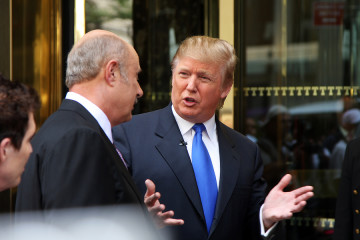Netanyahu Isn’t Quite Right on the Constitution: Noah Feldman

©2016 Bloomberg View
O32JL96KLVRR
(Bloomberg View) — It isn’t often that a sitting prime minister offers a lesson in comparative constitutional law. But Israel’s Benjamin Netanyahu did so Monday while defending a bill that would allow three-quarters of the Knesset to expel a member who “supports terrorism by word or deed, or denies the Jewish, democratic character of the state of Israel.”
Netanyahu compared the provision to the American rule that Congress may expel a member by two-thirds vote and to parliamentary rules in the U.K. and Canada that allow the expulsion of a member of Parliament for misconduct by a simple majority.
On the surface, the comparison seems reasonable. It shows that even the well-established English-speaking democracies allow for the expulsion of members.
But Netanyahu neglected to mention the most important difference, namely that the other countries allow expulsion for crimes or other wrongful conduct, while Netanyahu’s proposal contemplates expulsion for speech alone.
The right of legislators to speak without fear of consequence is even older than the right to free speech for the general public. In fact, it has its roots precisely in the English tradition of parliamentary democracy to which Netanyahu was appealing in his comparison. Netanyahu’s provision, however, isn’t similar to the practices of the English-speaking countries: It’s more like the very opposite.
Travel with me to 1689, a century before the U.S. Constitution, to that landmark of democratic governance known as the English Bill of Rights. Enacted as part of the Glorious Revolution that put an end to the struggles of the 17th century, the original Bill of Rights established what were understood as the rights of Englishmen under what was imaginatively called the “ancient constitution.”
One of those rights concerned the speech of members of Parliament. It said “that the freedom of speech and debates or proceedings in Parliament ought not to be impeached or questioned in any court or place out of Parliament.” In an era when seditious libel was a crime, this formulation was intended to protect the elected representatives of the public from being intimidated or limited in their criticism of the government.
As the great commentator William Blackstone noted, the “privilege of parliament was principally established, in order to protect its members not only from being molested by their fellow-subjects, but also more especially from being oppressed by the power of the crown.” In particular, Blackstone explained, parliamentary privilege was meant to assure that members were able to attend Parliament, participate and offer criticism. In other words, an exclusion from Parliament would’ve thwarted the purposes of the right.
The drafters of the U.S. Constitution liked the formulation so much that they adopted it almost verbatim. Article 1, Section 6, Clause 1 of the Constitution says that “for any speech or debate in either House,” senators and representatives “shall not be questioned in any other place.” As the U.S. Supreme Court put it in a 1972 opinion, the ultimate goal was “protect the integrity of the legislative process by insuring the independence of individual legislators.”
By now it should be obvious that a law authorizing the exclusion of a legislator for expressing unfavorable opinions — even opinions contravening the basic values of the government — is deeply inconsistent with the Anglo-American tradition of parliamentary privilege. Such a law would be unconstitutional in the U.S. and the U.K., and probably also in Canada.
Originally, the protection of speech or debate applied only to words that were said in Parliament; eventually, the doctrine was extended, and became the basis for broader right to free speech. As written, Netanyahu’s bill would even apply to speech within the Knesset. But if it were interpreted to allow members to speak freely on the floor, the proposed law would still extend to support of terrorism “by word,” and also to speech questioning whether Israel should be Jewish and democratic.
To be sure, there’s an argument to be made in favor of laws that outlaw certain points of view, or block advocates those points of view from getting elected to the legislature. Germany bans racist, Nazi parties, and it has sufficient historical reason to do so. Israel, too, bans racist parties from running for the Knesset; and here, too, history provides ample reason for caution.
Typically, such laws don’t regulate the words that legislators speak once they’re elected, and for good reason. Parliament is supposed to be a place of deliberation, and deliberation requires multiple points of view. Nevertheless, one might still argue that some kinds of speech go too far, and shouldn’t be protected, even when made by legislators.
What one can’t do is claim that this stance is consistent with English or American parliamentary practice. If Netanyahu wants to limit democratic speech in Knesset, he’s free to try. But he’d be making Israel less democratic by the standards of the countries he claims to be emulating.
This column does not necessarily reflect the opinion of the editorial board or Bloomberg LP and its owners.
To contact the author of this story: Noah Feldman at nfeldman7@bloomberg.net To contact the editor responsible for this story: Stacey Shick at sshick@bloomberg.net
For more columns from Bloomberg View, visit http://www.bloomberg.com/view






No Comment